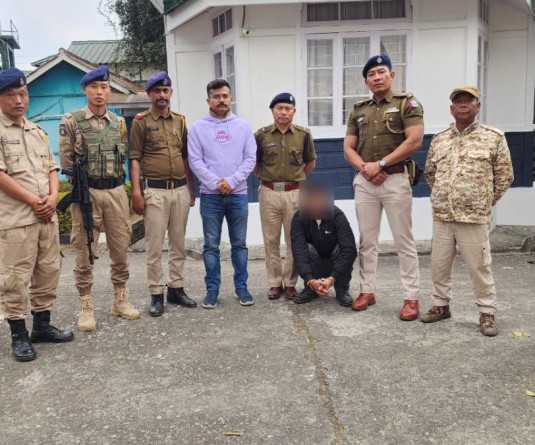
Dimapur, June 4 (MExN): NGO Project Orchid has denied it has set for drug-users mandatory or “100%” testing as was alleged recently by a number of concerned organizations representing the affected health community. “Project Orchid does not believe in mandatory testing, nor does it have any plans to introduce mandatory testing,” stated a rejoinder issued by Project Director of the NGO Dr. Langkham.
Earlier, it was alleged in the Media that NGOs Project Orchid/Avahan is preparing to initiate mandatory testing of IDU clients at its partner-targeted interventions sites. “We would like to set the record straight and state we don’t support ‘mandatory’ testing. We strongly believe that successful referral depends on the client’s own informed choice after receiving professional counselling by the SACS’ appointed ICTC counsellor,” the NGO clarified.
Project Orchid said that in accordance with the guidelines formulated by the National AIDS Control Organization/Nagaland State AIDS Control Society, Project Orchid and all its NGO partners only refer a client for voluntary testing at government-run ICTC centers.
“There is a great need to make the voluntary testing far more accessible and acceptable for vulnerable groups as early testing enables the HIV positive person to seek treatment and other services,” the clarification stated.
It was stated that NSACS, Project Orchid and their NGO partners are currently involved in understanding and deliberating on all possible challenges and issues. Many NGO partners have come across different concerns and ‘we plan to share these concerns with the State AIDS Control Society for further consideration and review,’ the NGO said.
Further, the clarification stated that referral services are an important component of prevention, care and support at Project Orchid. The reason is, the NGO said, diagnosis of HIV status and access to treatment are critical factors for HIV prevention, care and support.
“If an individual wishes to voluntarily share his/ her HIV status to the counselor or other trained staff at the Project ORCHID TI, necessary linkages to other support services and ART centers are facilitated. All necessary follow up services including counseling, adherence to treatment and support for such an individual; is provided only under a “shared confidentiality” arrangement.”
Project Orchid assured that it has, with TI partners, implemented prevention initiatives based on the principles of respect and community participation. This approach has led to the community playing a key leadership role in the project implementation. “We believe and uphold that protecting the rights and dignity of vulnerable individuals is critical to effective HIV prevention. Project ORCHID/Avahan supports the state goal of providing universal access to care through voluntary referrals from its operational clinics/DICs and support access to HIV related services,” the NGO added.






